DOMESTIC VIOLENCE CONFERENCE (El Sonador, Dominican Republic)
Promoting Economic Empowerment for Battered Women
Conference Leaders: Victor Manuel Batista & Albert Pena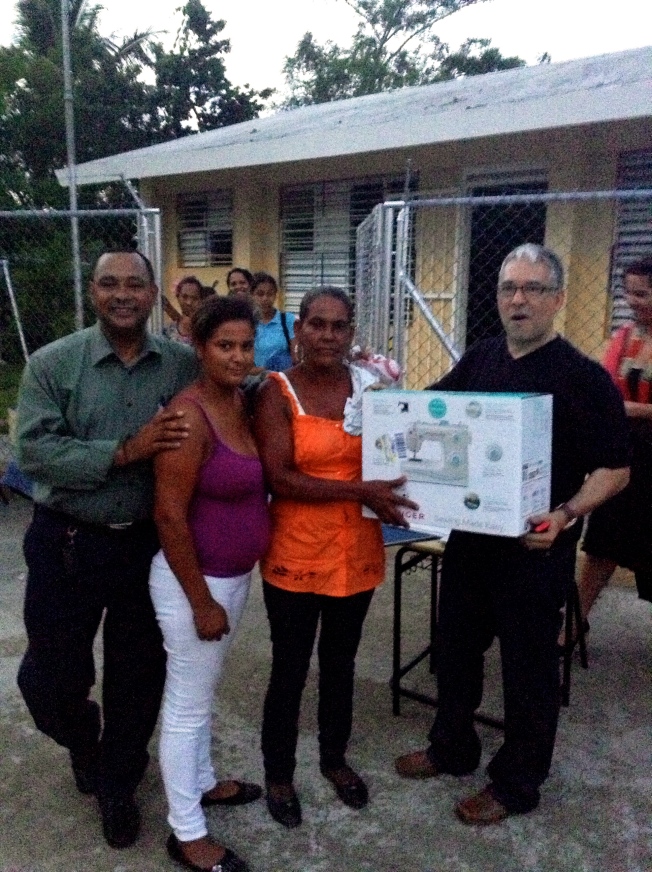
The moment of truth and validation for this cause arrived! A team of community leaders, faith leaders, congressional representatives, and legislative leaders rallied around this cause in El Sonador. On the final day of Dr. Caban-Vazquez’s research visit, and after completing community outreach to approximately 800 women within the region, she was ready to share her motivational speech to the women of “El Sonador”.
It was the most humbling and proudest moment as a researcher. She was able to witness another historic milestone for this community. The silence was broken! The community stakeholders were there to lend a helping hand!
After Dr. Caban-Vazquez shared her personal journey, and research findings, she was touched to have another strong and highly admired Latina address the women in that local village. Dra. Maria M. Fernandez, Diputada de la provincia Monsenor Nouel, PRSC-Congresa Nacional, serves as a deputy member of the legislative body know as the ‘Camara de Diputados’.
LISTEN TO HER SPEECH IN THE VIDEO YOUTUBE LINK BELOW.
Another great honor for Dr. Caban-Vazquez was to meet Arquimedes Reyes Taveras, Esq. As a highly respected and dedicated advocate for women’s rights, his commitment to this cause was demonstrated not only by his participation in this community forum, but also in the countless rallies and community events that he supports to empower the women of this region. It was a great honor to hear him speak on this issue.
LISTEN TO HIS SPEECH IN THE YOUTUBE VIDEO LINK BELOW:
https://www.youtube.com/watch?v=myEte-StZTw&feature=youtu.be
Ending the Silence: Domestic Violence in the Dominican Republic
Correspondent: Steve Uhlmann / Produced & edited by Tim Tripp
http://scrippsiij.blogspot.com/2013/12/ending-silence-domestic-violence-in.html
Promoting Economic Empowerment for Battered Women
Lead Researcher ~ Dr. Vilma Caban-Vazquez, Ed.D

- Art by Tanya Torres
http://www.tanyatorres.com
CLICK HERE FOR EXECUTIVE FINAL REPORT
BATTERED WOMEN ECONOMIC EMPOWERMENT PROJECT SCHOOL UNIFORM COOPERATIVE
Together one step at a time, we can break the silence and the cycle that have kept so many women and children oppressed by their abusers. With the generous support that Dr. Caban-Vazquez and her research delegates received, they were able to set a course for a second year of research and technical support.
 This lead researcher and her team traveled back and worked with a core group of the battered Latinas in Bonao. Using a secure lottery system, 10 out of the 50 women studied became part of an economic empowerment project that will serve as a pilot for the 2013/2014 study. With this plan, they will be able to directly help 10 of the 2012 research participants. These women will become part of a Self Help Group (SHG) that will create a School Uniform Cooperative (Davies, 2001). This economic empowerment project will enable and equip the domestic violence survivors to sew and sell school uniforms in and outside of their small town of Bonao, DR.
This technical support is a direct result of the key findings shared by the victims of the study. The goal for offering this empowering self help group model is to ultimately release the women from the oppressive and economic hold of their abusive husbands or domestic partners (Allen, 2004; Rios, 2007).
Research findings from the 2012 study showed that many of the women selflessly remained with their abusers to better improve their children’s odds of remaining in school. Since the men were the sole decision-maker in managing finance, the women feared that they would struggle to purchase the costly school uniforms without any career training or employment options.
This lead researcher and her team traveled back and worked with a core group of the battered Latinas in Bonao. Using a secure lottery system, 10 out of the 50 women studied became part of an economic empowerment project that will serve as a pilot for the 2013/2014 study. With this plan, they will be able to directly help 10 of the 2012 research participants. These women will become part of a Self Help Group (SHG) that will create a School Uniform Cooperative (Davies, 2001). This economic empowerment project will enable and equip the domestic violence survivors to sew and sell school uniforms in and outside of their small town of Bonao, DR.
This technical support is a direct result of the key findings shared by the victims of the study. The goal for offering this empowering self help group model is to ultimately release the women from the oppressive and economic hold of their abusive husbands or domestic partners (Allen, 2004; Rios, 2007).
Research findings from the 2012 study showed that many of the women selflessly remained with their abusers to better improve their children’s odds of remaining in school. Since the men were the sole decision-maker in managing finance, the women feared that they would struggle to purchase the costly school uniforms without any career training or employment options.
In the summer of 2013, our direct technical and economic support drastically empowered many brave women to take hold of their destiny and develop a school uniform micro-enterprise. As a result, they gained the economic leverage they needed to provide their children, and ultimately their community, with a vital educational resource and opportunity.
CERTIFIED TRAINING & APPRENTICESHIP
Research-proven methods on effective practices and training informed the direction of this rural community-based project (Perkins, 2006; UN, 2001). The women received certified training from a team of seamstresses in the field. Furthermore, they received support from local merchants to sell and promote the women’s school uniforms. The lead researcher’s vision of expanding this initiative can be supported by proceeds from additional fundraising events. This may offer the women an opportunity to establish an apprentice program wherein the study participants will “reach one…and teach one”.
 Dr. Caban-Vazquez recognizes the great potential of replicating this form of empowerment work across many Latino rural communities. The findings from 2013/2014 economic empowerment pilot will help to establish field-tested and proven strategies for developing sustainable community outreach.
Dr. Caban-Vazquez recognizes the great potential of replicating this form of empowerment work across many Latino rural communities. The findings from 2013/2014 economic empowerment pilot will help to establish field-tested and proven strategies for developing sustainable community outreach.
PICTURES TELL THE STORY
In August of 2013, our community outreach efforts reached approximately 800 women across different hamlets in the Province of Alta Gracia in the Dominican Republic. It was an honor to be greeted by hundreds of women as they sought advice on dealing with the epidemic of domestic violence in their communities.
ARTIST TANYA TORRES OFFERS HER GIFT OF INSPIRATION AND HOPE:
The lead researcher would like to thank the talented Latina artist Tanya Torres for her artistic contribution. Tanya Torres has extended permission for Dr. Caban-Vazquez to use her inspirational and cultural iconic figure—Cacibayagua: Taina Goddess— in any promotional literature and research reports sharing the worked centered on The Latina Domestic Violence Research Project.
 In August 2013, when the research team travels back to Bonao, Dr. Caban-Vazquez will deliver a special inspirational gift especially designed to inspire the 10 domestic violence victims (Appendix D) Mrs. Torres lovingly hand–crafted unique wearable art necklaces with the inspirational image of Cacibayagua— the mythical Taina Goddess. Traditional Dominican folklore describes how Cacibayagua is the original life source of the indigenous Taino Indians that emerged from her beautiful cave. The inspirational intention behind sharing this gift is to encourage the women. In the face of adversity and their personal decision to renounce the economic stranglehold of their abusers, these empowered women can recall the legend of Cacibayagua. The necklace signifies their promise and legacy as Latina women and descendants of the rich Taino culture. It is a symbolic reminder to tap into the spiritual strength of their inner Taina goddess. This artistic gift serves as a beautiful and concrete reminder of their legacy and the promise of their destiny as “empowered” women and not “beaten” women. http://tanyatorres.com
In August 2013, when the research team travels back to Bonao, Dr. Caban-Vazquez will deliver a special inspirational gift especially designed to inspire the 10 domestic violence victims (Appendix D) Mrs. Torres lovingly hand–crafted unique wearable art necklaces with the inspirational image of Cacibayagua— the mythical Taina Goddess. Traditional Dominican folklore describes how Cacibayagua is the original life source of the indigenous Taino Indians that emerged from her beautiful cave. The inspirational intention behind sharing this gift is to encourage the women. In the face of adversity and their personal decision to renounce the economic stranglehold of their abusers, these empowered women can recall the legend of Cacibayagua. The necklace signifies their promise and legacy as Latina women and descendants of the rich Taino culture. It is a symbolic reminder to tap into the spiritual strength of their inner Taina goddess. This artistic gift serves as a beautiful and concrete reminder of their legacy and the promise of their destiny as “empowered” women and not “beaten” women. http://tanyatorres.com
NARRATIVE ANALYSIS OF RESEARCH FINDINGS
Based on the data collection and analysis methods discussed above, Dr. Caban-Vazquez was able to identify several re-occurring themes from the interviews. These central themes can be grouped into the following categories of participants’ needs: (a) economic factors, (b) women empowerment, (c) Victims’ patterns (d) social-emotional factors, and (e) raising community awareness.
THEME 1: ECONOMIC FACTORS
The majority of the battered women interviewed communicated their dire need for economic resources that would enable them to leave their abusive relationships. Many of the women expressed their desire to successfully seek and secure employment outside of Bonao. Upon further examination, employment opportunities are extremely limited in this rural community. Many women expressed that they choose to remain in their abusive relationship because they don’t want to disrupt their children’s education by moving away and not having any economic resources to ensure that their children attend school. They selflessly chose to stay so that their children could at least have a better chance of attending school. The majority of the local men are the sole financial providers of the home. In light of the economic situation in their rural communities, if the battered women resolved to leave their abusive partners, these women would financially struggle to purchase the costly school uniforms that their children are required to have to attend school. Many of the women hoped that there would be some form of career training available to the women of Bonao that would open some economic options.
THEME 2: WOMEN EMPOWERMENT
More than half of the research participants wish they had a women’s community center where they may attend more “chalas” or educational workshops. They believe that this community strategy would increase the awareness level about domestic violence in their community. Prior to Dr. Caban-Vazquez informational session about domestic violence laws with the participants, the majority of the battered women communicated in their interviews that they were not familiar with the Domestic Violence Law No. 24:97. Some women shared that if they knew where to go and get a legal advocate, they would feel more comfortable trying to leave their abusive partner.
THEME 3: BREAKING FREE FROM AN ABUSER
A closer examination revealed that less than 25 percent of the participants interviewed in multiple research forums were actually able to break free from their abusive partner. Regrettably, half of the women that broke free from the abuser eventually returned to their abusive partner. In view of this shift, only 12 percent of the study participants were able to remain away from their former abusive partner. The researcher realized that she would need to probe further and plan future focus group interviews and one-to-one interviews to better understand the complex social forces that were shaping the womens’ choice to come back to an abusive relationship.
THEME 4: SOCIAL EMOTIONAL FACTORS
Focus group interviews (n=15) revealed that many of the women felt ashamed about their abusive situation. They expressed great difficulty about sharing their situation with other women in their community for fear of judgement. Others expressed that they believe one of the reasons why the community is tolerate of domestic violence may be due to the believe of a “man needs to be a man”. Some women shared that some people have expressed that if the men don’t behave this way and put their women in their place, then the women will get out of control.
Several older women shared their belief that the cycle of domestic violence in their community continues to flourish. They discretely noted several of the young women in the town who are dating or engaged to an abusive boyfriend. These older battered women earnestly conveyed their concern for these young women. The vicious cycle of domestic violence was quite evident in this community.
THEME 5: RAISING COMMUNITY AWARENESS
Many of the women felt it was necessary to involve the men in the community awareness initiatives centered on domestic violence in Bonao. Some of the women suggested a faith-based counseling group for abusers with a local spiritual leader, pastor or priest. They expressed that it was part of the churches responsibility to address the issue of how the church congregants are also abusers of this wifes.
IMPLICATIONS FOR FURTHER STUDY
Based of the multiple themes that were revealed in this preliminary research study, this researcher considered potential areas for future study. This researcher recommends that future research should focus on the economic empowerment theme that was raised by the majority of the battered women. This form of future research may be helpful for other rural Latino communities that face this universal economic obstacle. Another area of future study can center on how various community stakeholders can raise community awareness on the issue of domestic violence (Johnson, 2003). The application of this future research can greatly affect social change within the Latino community. It can also inform government and social agency policy that is designed for the educational and economic empowerment of various communities.
“I alone cannot change the world… But I can cast a stone across the waters to create many ripples.” ~Mother Teresa
TOGETHER WE CAN BREAK THE SILENCE…AND HELP BREAK THE CYCLE OF DOMESTIC VIOLENCE.
PLEASE DONATE AT: http://www.gofundme.com/VIOLENCIA-DOMESTICA
When we empower a battered woman to break free from the cycle of domestic violence…we empower a community to break the silence and say NO MORE.
THE SEED OF HOPE: Last year, Doctora Vazquez was on a mission to raise awareness against Domestic Violence. Vilma wanted to commemorate her brave mother Maria, who was a victim of domestic violence and lost her battle with colon cancer on April 2, 2012. Her strongest desire as an advocacy researcher was to plant seeds of hope and positive social change to stop domestic violence in the Latino community.
Acknowledgements
A great deal of coordination and international collaboration was necessary to make the following Latina domestic violence research study a reality. The lead advocacy researcher, Dr. Vilma Caban-Vazquez, would like to acknowledge all those whose support and contributions helped to launch a preliminary domestic violence research study in August of 2012. Subsequently, this practitioner-researcher is extremely grateful for all of the altruistic individuals whose perpetual support, via auxiliary resources and expanded community networks, abetted and nurtured her dream. With their support, Dr. Caban-Vazquez was able to develop a research-based action plan to offer more technical support to the battered women that she studied in August of 2012.
First and foremost, the remarkable support of her faithful friend and fellow humanitarian Loida Pujols (former United Nations Consulate General to the Dominican Republic, 2000-2004) as well as Loida’s noble and supportive husband Albert Peña helped the lead researcher Dr. Caban-Vazquez achieve her dream of establishing an advocacy footprint in Latin America. Loida and Albert reached out to their network of close family and friends and rallied support for this humanitarian cause. Dr. Caban-Vazquez is extremely grateful for their community service and assistance.
OPENING DOORS FOR CHANGE IN THE DOMINICAN REPUBLIC TELEVISION & RADIO COVERAGE Consequently, a close childhood friend of Mr. Peña, former Councilman Victor Manuel Bastista, played a pivotal and instrumental community role in serving both as a representative of this initiative in his small rural town of Bonao, as well as one of our strongest rallying supporters. In solidarity and support to this domestic violence cause, community advocates Mr. Pena and Mr. Batista locked arms to serve as advocates and shared voices for community change by coordinating various domestic violence conferences in numerous faith-based and educational venues. They were quite resourceful in their outreach and traveled across different towns and villages to network with various community stakeholders. They submitted press releases to various regional news media. As a result, news coverage about the domestic research project was shared with the Hortensia Magazine, which was based out of the capital of Santo Domingo. Furthermore, they reached out to the local television program “En Familia” and fortunately they gained a community news slot wherein they reported news of the upcoming events on Bonao Television, Channel 12 (http://www.bonaotv.com). Their resourceful outreach efforts encouraged local women to attend the domestic violence conference as well as extended an invitation to consider being a part of the research study. Thanks to their noble efforts, over 50 participants attended the domestic violence awareness conferences and educational workshops. Eventually, the editor of the Hortensia Magazine traveled from the capital Santo Domingo to observe the large group participant research discussions. As a way to demonstrate her support, she wrote a feature article about the lead researcher and the merit of this study and her efforts (Appendix A).
Using various informational platforms, Mr. Pena and Mr. Batista helped to raise community awareness about the prolific rate of domestic violence in the Dominican Republic. Dr. Caban-Vazquez is immensely grateful for all of their outreach. She was inspired by their natural leadership abilities to tenaciously mobilize a much-needed service to their community. Their campaign action plan was to bring the issue of Domestic Violence to the forefront of Bonao’s community economic agenda. This was an extremely viable outreach strategy. The ultimate goal of involving several philanthropic community agents, faith-based organizations, educational institutions, telecommunication organizations, as well as town and provincial legislative leaders would help pave the way. In due course, their proactive stance could help the victims of domestic violence by opening potential lines of future funding and community support.
MEETING WITH THE DOMINICAN REPUBLIC SENATOR: In addition, the lead researcher particularly extends her greatest appreciation to Senator Amable of the Alta Gracia Province in the Dominican Republic. This distinguished public servant, welcomed the lead researcher and her research team’s arrival in the midst of his personal holiday. He received the delegates assigned to this research task with such genuine warmth, and enthusiasm. Senator Amable’s willingness to assist the team in any way possible to achieve a successful preliminary research study indicated his level of commitment to his battered constituents of Bonao, Dominican Republic.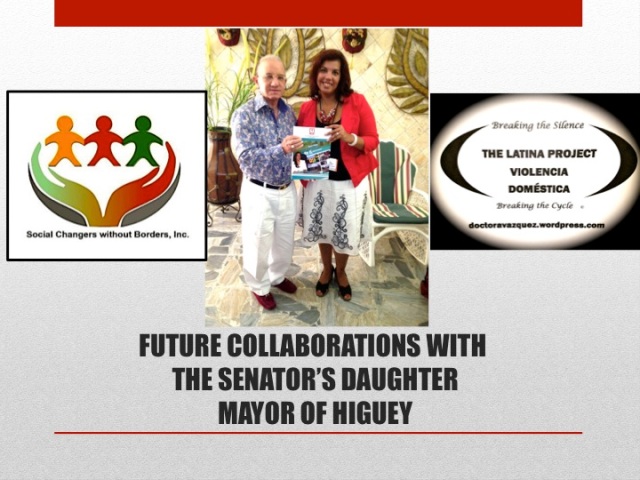
With their joint and dynamic efforts, this compassionate international team of community advocates helped to bring the epidemic community issue of domestic violence to light. Moreover, with the collective endeavors of current and former United Nations staff and volunteers, over time The Latina Project: Breaking the Cycle…Breaking the Silence research project became noteworthy news outside the small town of Bonao. As such, prior to launching the economic empowerment project, Dr. Caban-Vazquez will travel to Geneva, Switzerland to confer with the United Nations Dominican Republic Ambassador as well as meet with the United Nations Dominican Republic Ambassador stationed in Santo Domingo. As an advocacy researcher, she will apprise the UN dignitaries of the status of the research project and her goal of presenting research findings and the implications of this research at the 2014 World Humanitarian Conference in Geneva, Switzerland.
SOCIAL CHANGERS WITHOUT BORDERS, INC. A special thanks goes to Dr. Caban-Vazquez’s fellow executive board members of the humanitarian research organization Social Changers without Borders, Inc. (Appendix B). Their belief in Dr. Caban-Vazquez’s humanitarian research capabilities and their support nurtured her idea for this advocacy research study. She is proud to be an active member of this outstanding organization.
ARTIST COLLABORATION WITH TANYA TORRES The lead researcher would also like to thank the talented Latina artist Tanya Torres for her artistic contribution. Tanya Torres has extended permission for Dr. Caban-Vazquez to use her inspirational and cultural iconic figure—Cacibayagua: Taina Goddess— in any promotional literature and research reports sharing the worked centered on The Latina Domestic Violence Research Project. In August 2013, when the research team travels back to Bonao, Dr. Caban-Vazquez will deliver a special inspirational gift especially designed to inspire the 10 domestic violence victims. Mrs. Torres lovingly hand–crafted unique wearable art necklaces with the inspirational image of Cacibayagua— the mythical Taina Goddess. Traditional Dominican folklore describes how Cacibayagua is the original life source of the indigenous Taino Indians that emerged from her beautiful cave. The inspirational intention behind sharing this gift is to encourage the women. In the face of adversity and their personal decision to renounce the economic stranglehold of their abusers, these empowered women call recall the legend of Cacibayagua. The necklace signifies their promise and legacy as Latina women and descendants of the rich Taino culture. It is a symbolic reminder to tap into the spiritual strength of their inner Taina goddess. This artistic gift serves as a beautiful and concrete reminder of their legacy and the promise of their destiny as “empowered” women and not “beaten” women. HER WEBSITE IS http://www.tanyatorres.com
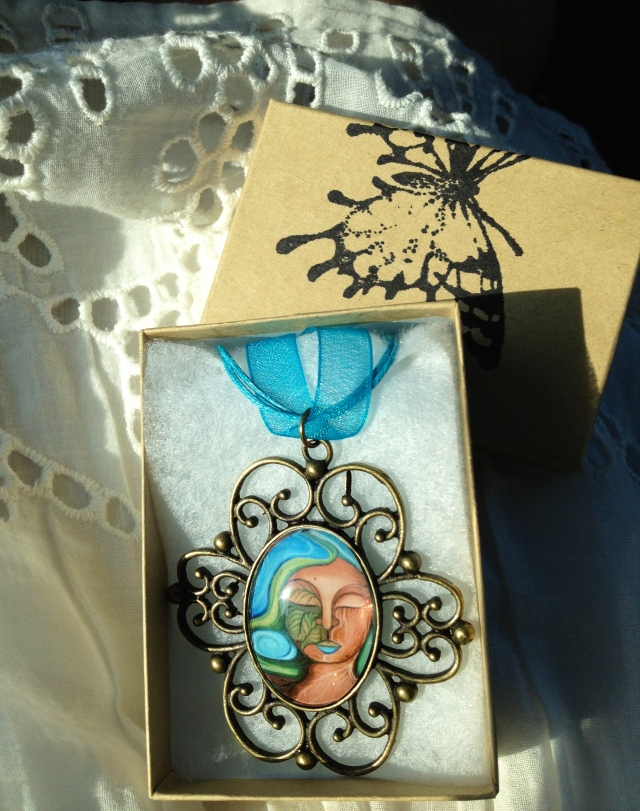 LOVING CIRCLE OF FAMILY & FRIENDS Dr. Caban-Vazquez is eternally grateful for the generous support she received from a loving circle of intimate family and friends. After the lead researcher did an extensive literature review of viable empowerment strategies for battered women, she recognized the strong potential for making the greatest impact in the lives of these abused women. Subsequently, she rallied for financial support with the Friends Against Domestic Violence fundraising website at at http://www.gofundme.com/VIOLENCIA-DOMESTICA (Appendix D).
LOVING CIRCLE OF FAMILY & FRIENDS Dr. Caban-Vazquez is eternally grateful for the generous support she received from a loving circle of intimate family and friends. After the lead researcher did an extensive literature review of viable empowerment strategies for battered women, she recognized the strong potential for making the greatest impact in the lives of these abused women. Subsequently, she rallied for financial support with the Friends Against Domestic Violence fundraising website at at http://www.gofundme.com/VIOLENCIA-DOMESTICA (Appendix D).
PURCHASED MATERIALS FOR THE ECONOMIC PROJECT SCHOOL UNIFORM COOPERATIVE: This community grassroots initiative helped to secure a modest portion of funds. As a result, with the additional financial support of Albert and Loida, the researcher was able to purchase 10 sewing machines and secure the safe shipment of those machines. In addition, monies raised helped to purchase the bulk of the essential seamstress tools needed to economically empower the domestic violence survivors. A compassionate circle of friends saw the collective power of this economic empowerment vision and they worked together to establish a toolkit for the success of this school uniform cooperative. Dr. Caban-Vazquez keeps her dedicated group of supporters updated on the latest developments of this work using her research blog at http://doctoravazquez. wordpress. com (Appendix E).
 Last but not the least, she wishes to thank her supportive son Christopher for his encouragement in pursuing her research dreams. Vilma values his endearing token of support and love in helping her create positive social change for battered women. In the spring of 2013, Christopher served as editor-in-chief of his college newspaper and he invited his mother to write an informational article about this topic. It meant the world to her.
Last but not the least, she wishes to thank her supportive son Christopher for his encouragement in pursuing her research dreams. Vilma values his endearing token of support and love in helping her create positive social change for battered women. In the spring of 2013, Christopher served as editor-in-chief of his college newspaper and he invited his mother to write an informational article about this topic. It meant the world to her.
Lastly, without the love and support of her Heavenly Father this would not be possible. She firmly believes that her creator is celebrating the fruits of this community labor with Vilma’s beloved mother. Without the love of community, this form of collective social change endeavor would not be possible.

HOW CAN YOU HELP?
TOGETHER…we can all encourage a culture of positive social change for the survivors of domestic violence in this Latino community. Please ask yourself what you can do or contribute to this cause. Please consider making a donation to this worthy cause.
When we empower a woman…we empower a community.
FOR MORE INFORMATION CONTACT:
Dr. Vilma Caban-Vazquez
Fundraising Coordinator & Executive Board Member
Social Changers without Borders, Inc.
vcabanvazquez@socialchangers.org
WE TRULY NEED YOUR DONATION TO MAKE A DIFFERENCE: http://www.gofundme.com/VIOLENCIA-DOMESTICA
ADVERSITY WAS THE SEED FOR THIS PROJECT
As the only daughter of a battered Latina immigrant from Puerto Rico, I witnessed how my mother Maria suffered as a victim of Domestic Violence. Perhaps this is where I began fine-tuning my advocacy lens. It was in the midst of these turbulent moments where sparks took the form of my heart’s desire to share the urgent call for helping battered women. Regrettably, there are unsettling memories which at times tend to resurface. However, they activate this researcher’s deep set longing to examine the extent of how my mother Maria suffered. When I was young, my mother would urge me not to say anything and to keep “family problems”… PRIVATE. She would advise me that it’s best not get other people involved in your marital problems. As a result, Maria dealt with the conflicting pain of staying in an abusive relationship for the sake of her family and children. She carried this pain for over 25 years.
This researcher had a tough secret to keep. I wondered how many other women and children actually walk around with haunting memories of domestic violence or “family problems” on their heavy hearts. In April 2012, right before my mother lost her battle with cancer, I vowed at my mother’s deathbed that I would use her story to… break the silence… and break the cycle of domestic violence.
As an advocacy researcher, in the summer of 2012, I had the honor of launching my first domestic violence research study in the Dominican Republic. The Latina Project: Breaking the Silence…Breaking the Cycle . It was my way of establishing a research footprint on an elusive phenomena that maintains an emotional, spiritual, physical, and economic stranglehold on many Latino communities.
Initially, I was inclined to reach out to my mom’s hometown in Puerto Rico, but after much introspection, I realized that personally it was too soon to examine this challenging topic so painfully close to home. At this juncture, it was best to examine the broader issue of domestic violence. I recognized that it was important to widen the aperture of this obscure topic and gain a stronger understanding of the issues related to domestic violence in many Latino communities.
Ultimately, this qualitative researcher elected to pursue a replicable course of study that could help her examine the underlying universal themes that are evident in domestic violence in Latino communities. I selected a Caribbean sister community not far away from Puerto Rico…it was Columbus’ first discovery… and symbolically it would serve as this researcher’s first discover of domestic violence. It was the captivating country of the Dominican Republic.




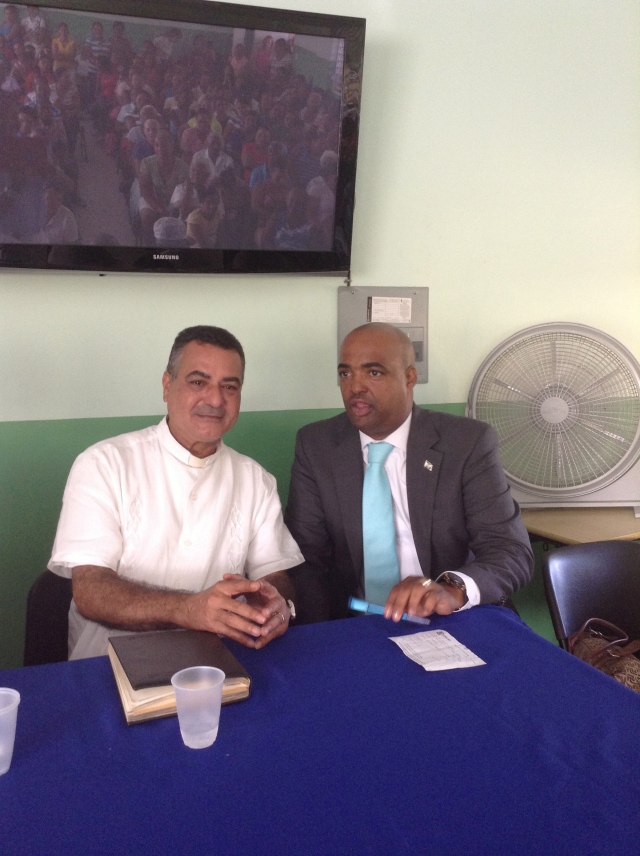




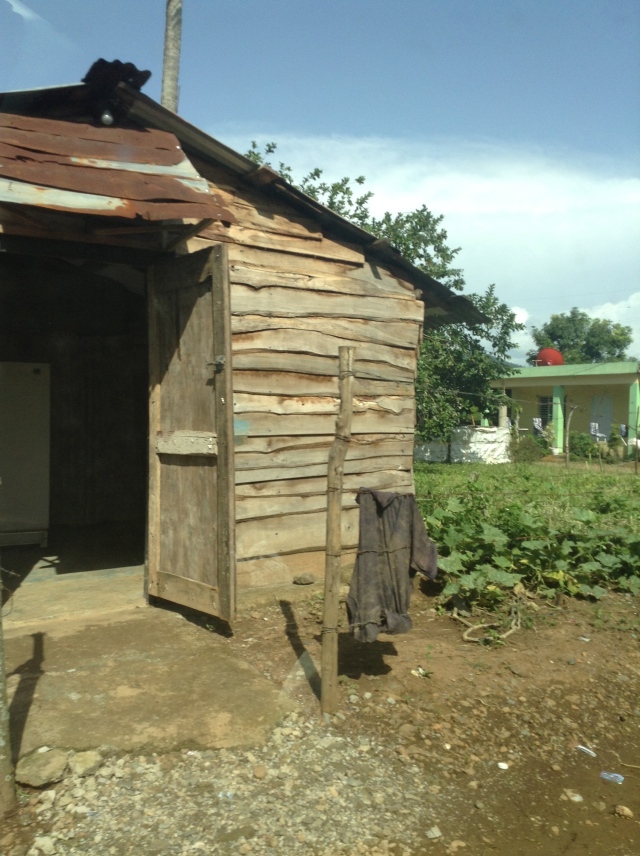









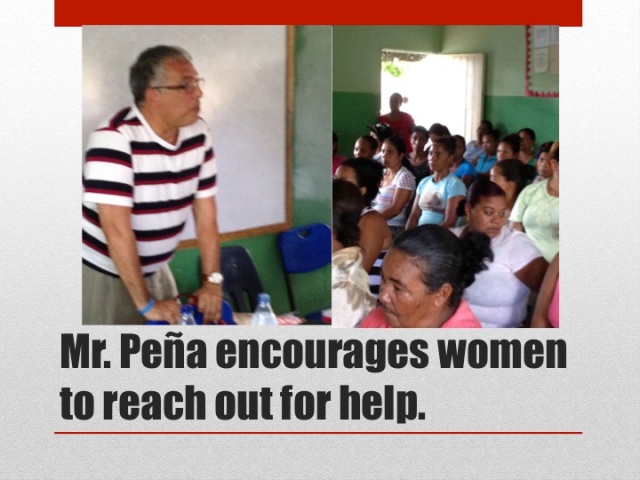

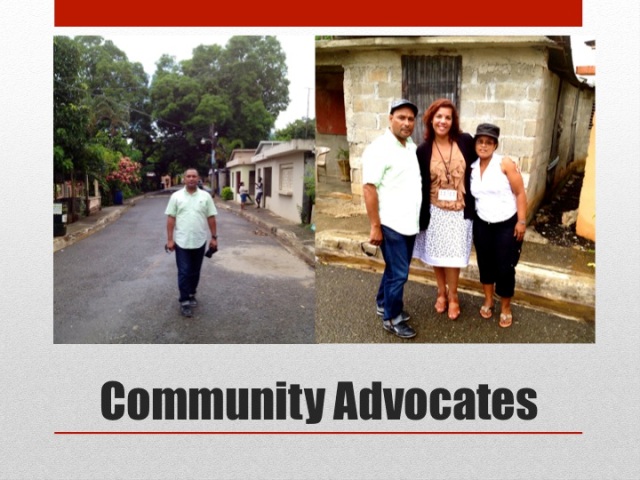
My brother suggested I might like this blog.
He was totally right. This post truly made my day. You cann’t imagine just how much time
I had spent for this information! Thanks!